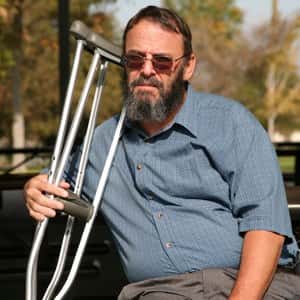
Older people who break a bone are at a significantly greater risk for another fracture. This also increases their chance of premature death, as well as pain, infection, depression and functional decline. How could they avoid a fracture?
How Doctors Should Help Patients Avoid a Fracture:
The logical thing for doctors to do, say researchers writing in JAMA Internal Medicine, is review the list of prescription medications people are taking when they break a bone. Then the doctors ought to change those drugs that could raise fracture risk.
Unfortunately, that doesn’t seem to happen most of the time. The investigators reviewed the Medicare Part D prescription drug records of more than 168,000 older people who had broken a bone.
Drugs That Disrupt Balance:
They found that about three fourths of these individuals were taking drugs that could predispose them to fracture. Some were taking sleeping pills such as zolpidem (Ambien) or benzodiazepine anti-anxiety medicines such as alprazolam (Xanax) or clonazepam (Klonopin). Drugs of this sort can lead to unsteadiness.
Other drugs that may affect balance include antidepressants, especially SSRI-type drugs such as fluoxetine (Prozac) or sertraline (Zoloft). Many common blood pressure medications, including thiazide diuretics like hydrochlorothiazide, can cause dizziness. Blood pressure pills like clonidine (Catapres, Kapvay) or guanfacine (Intuniv, Tenex) often cause lightheadedness or even fainting if a person stands up suddenly.
Drugs That Weaken Bones:
Other people in the study were taking inhaled corticosteroids for asthma or COPD. More than a quarter were on acid-suppressing drugs that weaken bones. These are PPI medications such as esomeprazole (Nexium), lansoprazole (Prevacid) or omeprazole (Prilosec). Anticonvulsants can also undermine bone strength.
Ask Your Doctor to Help You Avoid a Fracture:
It is disappointing that very few of these prescriptions were changed even after a nasty fracture. Perhaps the doctors who prescribed the medication were not the ones who took care of the patients when the fracture occurred. If doctors are not thinking about this problem, patients may need to bring it to their attention.
People who have broken a bone should ask their doctors to review all their medications to avoid a fracture in the future. Using alternatives to the riskiest medicines could reduce the likelihood that drugs for indigestion, insomnia or hypertension will increase the chance of another fracture. A medicine designed to improve bone strength such as alendronate (Fosamax) might also be considered. Such changes should be made only under a doctor’s supervision.

